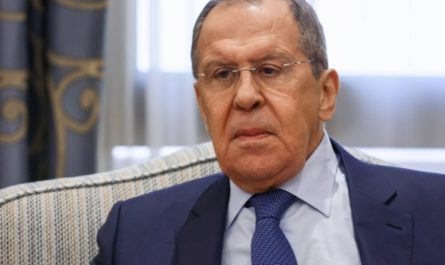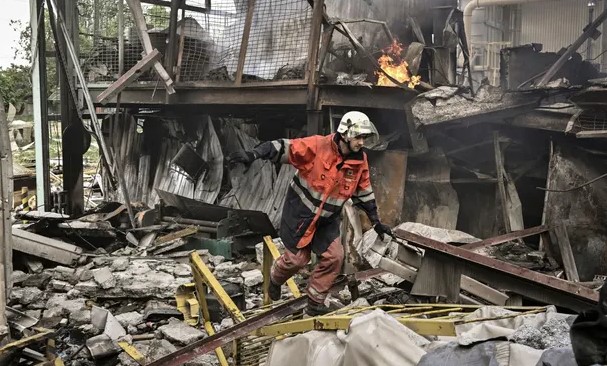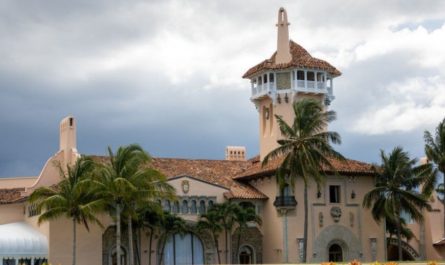Russia’s invasion of Ukraine has generated enormous costs. Most have been borne by brave Ukrainian citizens and the unfortunate Russian soldiers ordered to fight. But the whole world has experienced significant collateral damage: Further spikes in energy costs and food prices, and a possible global recession.
Nowhere has that indirect damage been greater than for those already on the brink of poverty, particularly in Africa. The food price index produced by the UN Food and Agriculture Organization hit a record high in March and fertilizer prices have also surged. Efforts by national policymakers to improve domestic food security, such as India’s recent ban on wheat exports, have made matters worse. The war’s ripple effects threaten to damage not only near-term production but also future harvests after the fighting in Ukraine ceases. Millions more Africans could thus soon face poverty, hunger or both.
But one potential negative consequence of the conflict can and must be contained: The temptation for rich-country policymakers to redirect development assistance from Africa to Ukraine. This happened in 2014, when Russia’s annexation of Crimea diverted resources away from Africa — even though the region was on the verge of a commodity price-driven recession.
That year, aid from OECD Development Assistance Committee members to Ukraine increased by 145 percent, while aid to sub-Saharan Africa dipped by more than 5 percent (the largest decrease in a decade), despite the economic slump in much of the region. Between 2013 and 2015, 21 of the 29 Development Assistance Committee countries reduced official development assistance to sub-Saharan Africa, even though the overall aid provided by these countries increased by 8 percent in real terms during this period.
Denmark, for example, increased its aid to Ukraine nearly fourfold from 2013 to 2015, but cut aid to sub-Saharan Africa by roughly 40 percent. Japan, fearing that Russia’s annexation of Crimea might embolden China to assert its territorial claims in the East China Sea more forcefully, pledged more than $1.8 billion in assistance to Ukraine in 2014 and 2015, while reducing aid to sub-Saharan Africa by nearly 16 percent.
The aid money diverted from Africa came primarily from initiatives to support the environment, urbanization, disaster risk management and government budgets, rather than from economic infrastructure projects like railways and mobile telephone lines, whose cancellation would be directly detrimental to donor economies.
Today’s Russia-Ukraine war is far more damaging than the conflict in 2014. Consequently, financial assistance has poured into Ukraine. The US has so far committed more than $54 billion to support Ukraine in the war. Neighboring Poland has provided more than $1.6 billion of military support.
Money has also come from nongovernmental sources. A special account that the National Bank of Ukraine opened to the public to raise funds for the country’s armed forces raised $525 million within two months. People from around the world have sent millions of dollars to Ukrainian landlords by renting Airbnb accommodation they have no intention of using.
Such generosity is of course to be welcomed. But it would be unfortunate if increased international assistance to Ukraine came at the cost of defunding important initiatives in sub-Saharan Africa. The region is entering a precarious period — and not only because of galloping food prices, rising energy costs and slower growth in its major export markets. African countries are confronting this dire outlook with high debt levels and almost no fiscal headroom owing to the pandemic-induced recession of 2020-21, which urgently necessitated support programs for poor households and small businesses.
To be sure, Africa has an interest in the success of Ukrainian and Western efforts. To the extent that authoritarianism is gaining ground globally, beating back Russian President Vladimir Putin’s effort to redraw boundaries in Europe may well discourage would-be autocrats from doing the same in Africa.
Shortly before Russia invaded Ukraine in late February, the Kenyan ambassador to the UN, Martin Kimani, celebrated Africa’s restraint in accepting the artificial national borders drawn by the colonial powers. “At independence, had we chosen to pursue states on the basis of ethnic, racial or religious homogeneity, we would still be waging bloody wars these many decades later,” Kimani said. Today, defeating Russia may also strike a blow in favor of democratic values in Africa.
That said, the international community’s interest in containing the Ukraine war’s collateral damage in Africa is no less compelling. So, as governments and other donors accelerate much-needed assistance to Ukraine, they should not delay initiatives such as the Global Alliance for Food Security, the G20 Common Framework for Debt Treatments and the COVID-19 Vaccine Global Access facility. Scaling back development assistance programs for Africa will only increase poverty, exacerbate food shortages that risk pushing some communities toward starvation and undermine democracy.
Source: Arab News




